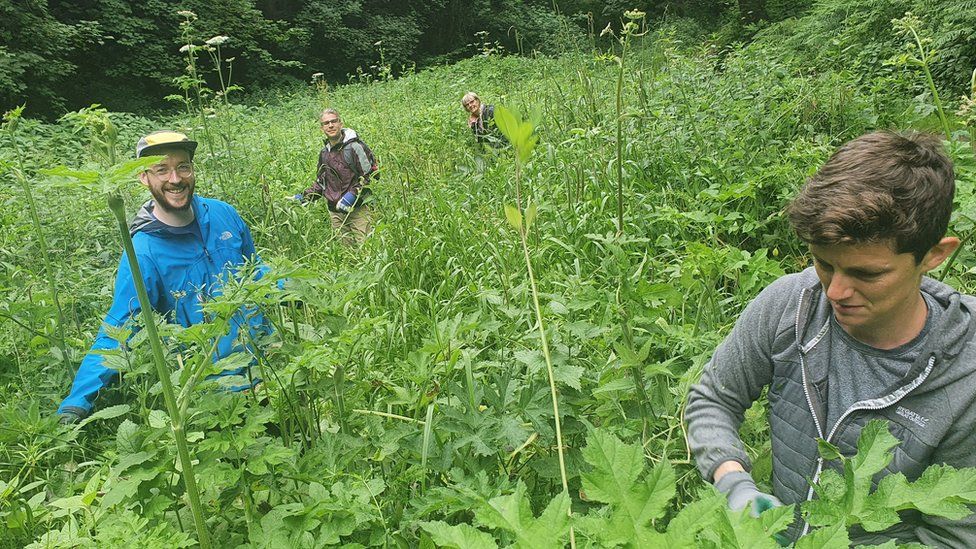Brislington: Volunteers battle with invasive Himalayan balsam
- Published

Volunteers are waging war against an invasive species crowding out native flora in a south Bristol beauty spot.
The Friends of Brislington Brook are targeting the Himalayan balsam that is thriving in the Nightingale Valley nature reserve.
First imported to the UK by Victorian botanists in 1839, it has no natural rivals and can quickly dominate ditches and river banks.
"It completely wipes everything out," volunteer Andy McBride-Coogan said.
"In its native India and Pakistan it is a sweet little border plant that grows to a height of about two foot," Mr McBride-Coogan told BBC West.
"But since it's been imported to Britain, nothing eats it so it just grows absolutely rampant."
The plant - which has been prized for its bright pink flowers - can grow 10ft (3m) in one season in the UK, with each plant producing up to 2,500 seeds.
It has the nickname "Touch-me-nots" because of the way its seed pods explode when ripe, spraying seeds everywhere.
"All the native species can't grow because this stuff takes all the light," Mr McBride-Coogan said.
"Because it is swamping the native species, the insects that would usually live on those species have got nothing."
He added the balsam is an annual, meaning it dies every year and can fall into water courses, potentially choking them and contributing to flooding.
Despite pulling up thousands of the plants every year, Mr McBride-Coogan said the best conservationists can hope for is "to keep it at bay" to give other plants a chance.
Unlike other problematic invasive species, such as Japanese knotweed, the balsam is harmless once it has been pulled up.
The volunteers, working in all weathers, leave it in piles where it rots away to compost.
As well as their regular "balsam bash" outings, the Friends of Brislington Brook also maintain the benches, signs and pond, and run regular litter picks and nature walks in Nightingale Valley and nearby St Anne's Woods.
Follow BBC West on Facebook, Twitter and Instagram. Send your story ideas to: [email protected]
Related Topics
- Published23 July 2023
- Published16 May 2023
- Published2 February 2023